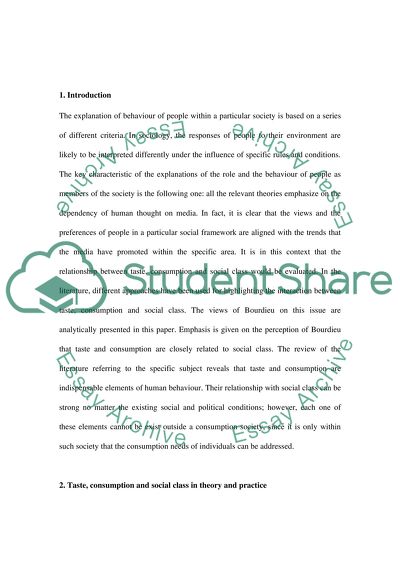Cite this document
(“Links between Taste, Consumption and Social Class Essay”, n.d.)
Links between Taste, Consumption and Social Class Essay. Retrieved from https://studentshare.org/journalism-communication/1436034-pierre-bourdieu-has-noted-the-degree-to-which
Links between Taste, Consumption and Social Class Essay. Retrieved from https://studentshare.org/journalism-communication/1436034-pierre-bourdieu-has-noted-the-degree-to-which
(Links Between Taste, Consumption and Social Class Essay)
Links Between Taste, Consumption and Social Class Essay. https://studentshare.org/journalism-communication/1436034-pierre-bourdieu-has-noted-the-degree-to-which.
Links Between Taste, Consumption and Social Class Essay. https://studentshare.org/journalism-communication/1436034-pierre-bourdieu-has-noted-the-degree-to-which.
“Links Between Taste, Consumption and Social Class Essay”, n.d. https://studentshare.org/journalism-communication/1436034-pierre-bourdieu-has-noted-the-degree-to-which.


